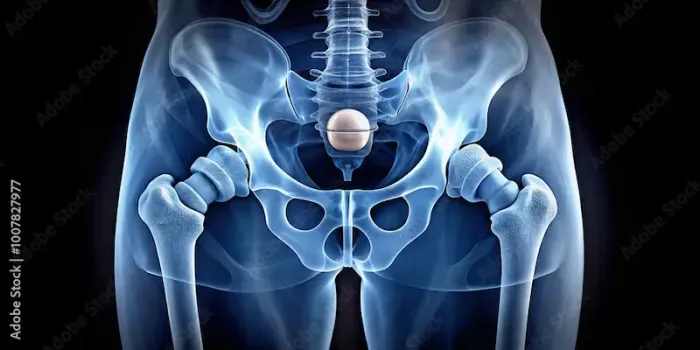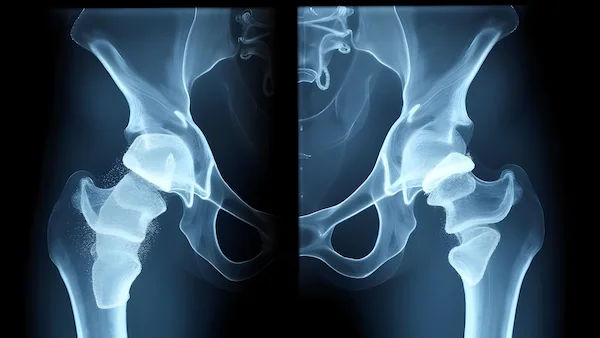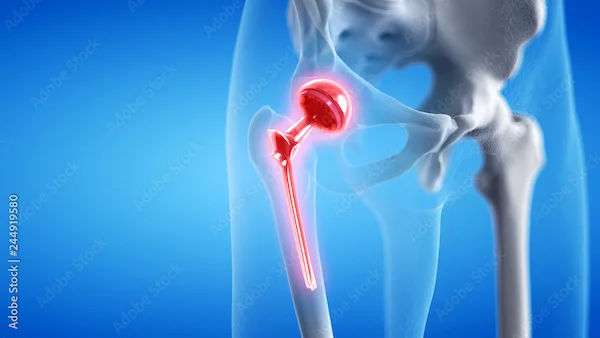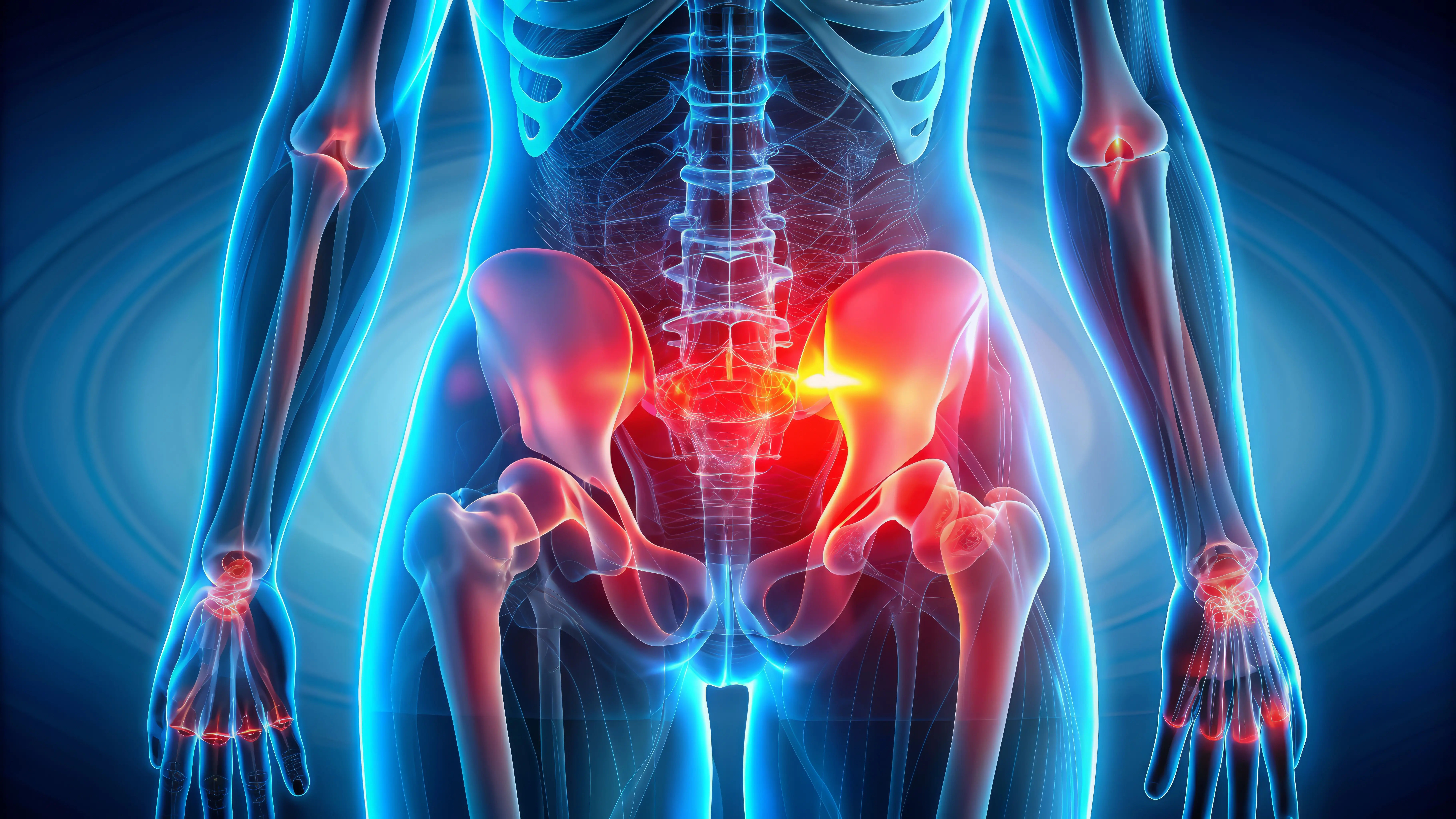Regain Your Mobility The Life-Changing Benefits of Hip Revision Surgery
Explore the life-changing benefits of hip revision surgery, from pain relief and restored


Introduction: When Your First Hip Replacement Needs a Tune-Up
You underwent hip replacement surgery hoping for a permanent solution to debilitating pain. For years, it worked wonderfully, giving you back your active lifestyle. But now, you might be experiencing a familiar, unsettling ache, a feeling of instability, or a decrease in mobility. It’s a frustrating and worrying situation, but you are not alone. Hip replacements are incredibly successful, but like any mechanical implant, they can wear out or develop problems over time. This is where hip revision surgery comes in. This specialised procedure is performed to replace a failing or damaged original hip implant. While the thought of a second surgery can be daunting, understanding the profound benefits can provide immense reassurance. This article will guide you through the advantages of this procedure, from complete pain relief and restored function to the less-discussed psychological boosts. Our goal is to empower you with knowledge, so you can have an informed discussion with your doctor about reclaiming your quality of life.
What is Hip Revision Surgery? A Quick Refresher
Hip revision surgery is a procedure to remove all or part of an existing hip prosthesis and replace it with new components. It's important to know that it is significantly more complex than a primary (first-time) hip replacement. The surgeon must carefully remove the old implant, which may have bonded with your bone, and then reconstruct the hip joint, often dealing with bone loss in the process. The new implants used in revision surgery are typically more specialised to address these unique challenges. Despite its complexity, for the right candidate, the benefits of hip revision surgery far outweigh the risks, offering a new lease on an active, pain-free life.
Consult an Orthopaedist for the best advice
Top Benefits of Undergoing Hip Revision Surgery
The decision to proceed with revision surgery is driven by the promise of specific, life-improving outcomes. Let's break down the key advantages.
1. Significant and Lasting Pain Relief
The primary reason for any hip surgery is pain alleviation. When a hip implant fails—due to loosening, wear, or infection—it can cause significant inflammation and pain that is often worse than the original arthritic pain. Revision surgery directly addresses the source of this pain. By removing the unstable or infected components and installing a secure, new implant, the constant grinding, instability, and inflammation are eliminated. Patients often report a dramatic reduction in pain, allowing them to sleep through the night and participate in daily activities without a constant reminder of their hip problem. This is the most immediate and cherished benefit of the procedure.
2. Restoration of Mobility and Function
A failing hip implant can severely limit your range of motion. You might find it difficult to walk, climb stairs, bend over, or even put on your shoes. This loss of function can be incredibly disabling. Hip revision surgery aims to restore the mechanical function of the joint. By providing a stable and well-aligned joint, the procedure allows you to regain mobility. Post-surgery, with dedicated physical therapy, patients can return to walking, gardening, swimming, and other low-impact activities they love. The restoration of this basic freedom is a transformative outcome.
3. Improved Stability and Correction of Dislocation
Some hip replacements can become unstable, leading to a feeling of the joint "giving way" or, in severe cases, dislocating (popping out of socket). This is not only painful but also dangerous. Revision surgery allows the surgeon to correct the positioning of the implant components or use implants with enhanced stability features to prevent this from happening. This restored sense of security is crucial for confidence in movement.
4. Enhanced Leg Length and Alignment
Over time, a loose implant can cause bone erosion or migration, leading to a leg length discrepancy. One leg may effectively become shorter, causing a limp and potential back pain. A key benefit of revision surgery is the surgeon's ability to correct this discrepancy, restoring equal leg length and proper biomechanical alignment. This correction can have a cascading positive effect, alleviating strain on the knees, back, and opposite hip.
5. Treatment of Infection and Prevention of Further Damage
A periprosthetic joint infection is a serious complication that can occur years after the initial surgery. It requires aggressive treatment, often involving a two-stage revision procedure. The first stage removes the infected implant and tissue, and the second stage, after the infection is cleared, implants a new prosthesis. While complex, this process is the most effective way to eradicate a deep joint infection and save the limb from amputation. Furthermore, revision surgery addresses issues like severe bone loss (osteolysis) caused by implant wear particles, preventing fractures and more complex problems down the line.
Beyond the Physical: The Psychological and Lifestyle Benefits
The impact of a successful hip revision extends far beyond the physical body.
Renewed Independence in Daily Life
Chronic pain and immobility can make you reliant on others for simple tasks. The ability to grocery shop, cook, clean, and drive without assistance is a profound form of independence that revision surgery can restore. This autonomy is invaluable for maintaining a sense of self and dignity.
A Boost in Mental Well-being and Confidence
Living with constant pain and physical limitation can lead to anxiety, depression, and social isolation. The relief from pain and the return to an active lifestyle after a successful hip revision surgery can dramatically improve your mental health. The confidence that comes from having a stable hip—knowing you can walk without a limp or fear of falling—opens doors to social engagements, travel, and hobbies, enriching your overall quality of life.
Is Hip Revision Surgery Right for You? Recognising the Signs
Not every ache after a hip replacement warrants revision. However, certain symptoms are strong indicators.
Common Symptoms Leading to Revision
Watch for the following symptoms that may indicate the need for hip revision:
• Pain: New or worsening pain in the groin, thigh, or buttock, especially when putting weight on the leg or starting to walk.
• Instability: A sensation that the hip is "giving out" or shifting.
• Swelling or Warmth: Persistent inflammation around the hip joint.
• Decreased Mobility: Difficulty walking or a noticeable limp that has returned.
• Stiffness: A feeling of the joint "locking" or being unable to move through its full range.
• Leg Length Discrepancy: A new or worsening difference in leg length.
If you are experiencing any of these symptoms, it is crucial to seek professional evaluation. If your condition does not improve after rest and pain management, consult an orthopaedic specialist online with Apollo24|7 for an initial assessment or to book a physical visit for a thorough examination.
The Importance of a Specialised Orthopaedic Evaluation
A surgeon specialising in revision joint replacement will perform a detailed evaluation, including a physical exam, X-rays, and sometimes advanced imaging like a CT scan or blood tests to check for infection. Apollo24|7 offers a convenient home collection for tests like CRP or ESR that can help screen for infection. This comprehensive workup determines the exact cause of the failure and whether revision is the best course of action.
Get Your Health Assessed
The Procedure and Recovery: What to Expect
Revision surgery is more complex and has a longer recovery timeline than primary replacement. The surgery itself can take several hours. Recovery involves a hospital stay, followed by a careful rehabilitation process with physical therapy. While the road to recovery requires patience, the goal is a stable, functional, and pain-free hip for the long term. Your surgical team will provide a detailed, personalised plan.
Conclusion: Taking the Next Step Toward a Pain-Free Life
The prospect of a second hip surgery can be intimidating, but it's essential to view hip revision not as a setback, but as a definitive solution to a new problem. The benefits of hip revision surgery—profound pain relief, restored mobility, regained independence, and improved mental health—are life-changing. By addressing the root cause of your discomfort, this procedure offers the opportunity to return to the active, fulfilling life you enjoyed after your first replacement. If you are experiencing signs of a failing hip implant, don't resign yourself to a life of pain and limitation. Take the proactive step of consulting with a qualified orthopaedic specialist to explore your options. A brighter, more mobile future is within reach.
Consult an Orthopaedist for the best advice
Consult an Orthopaedist for the best advice

Dr. Anil Pradeep Jadhav
Orthopaedician
23 Years • MBBS MS (Ortho)
Nashik
Apollo Hospitals Nashik, Nashik
(25+ Patients)

Dr. Padam Singh Gautam
General Physician/ Internal Medicine Specialist
43 Years • M.B.B.S (WARDHA M. S.), F.A.G.E. (MANIPAL), F.A.I.M.S. (Pb.), M.A.I.M.S. (Pb.), M.R.S.H. (LONDON)
Noida
Dr Padam Singh Gautam Fracture Clinic, Noida
(250+ Patients)

Dr. Susheel B
Orthopaedician
13 Years • MBBS, MS, Ortho Fellowship in Trauma ( Germany) Fellowship in Arthroscopy and Arthroplasty ( Switzerland)
Bengaluru
Apollo Medical Center, Marathahalli, Bengaluru

Dr. Rupam Chowdhury
Orthopaedician
10 Years • MBBS, DNB (Ortho.)
Kolkata
MCR SUPER SPECIALITY POLY CLINIC & PATHOLOGY, Kolkata

Prof. Dr. Jambu N
Orthopaedician
23 Years • MBBS, M.S Ortho, FRCS ,FACS
Chennai
Apollo Speciality Hospitals Vanagaram, Chennai
(150+ Patients)
Consult an Orthopaedist for the best advice

Dr. Anil Pradeep Jadhav
Orthopaedician
23 Years • MBBS MS (Ortho)
Nashik
Apollo Hospitals Nashik, Nashik
(25+ Patients)

Dr. Padam Singh Gautam
General Physician/ Internal Medicine Specialist
43 Years • M.B.B.S (WARDHA M. S.), F.A.G.E. (MANIPAL), F.A.I.M.S. (Pb.), M.A.I.M.S. (Pb.), M.R.S.H. (LONDON)
Noida
Dr Padam Singh Gautam Fracture Clinic, Noida
(250+ Patients)

Dr. Susheel B
Orthopaedician
13 Years • MBBS, MS, Ortho Fellowship in Trauma ( Germany) Fellowship in Arthroscopy and Arthroplasty ( Switzerland)
Bengaluru
Apollo Medical Center, Marathahalli, Bengaluru

Dr. Rupam Chowdhury
Orthopaedician
10 Years • MBBS, DNB (Ortho.)
Kolkata
MCR SUPER SPECIALITY POLY CLINIC & PATHOLOGY, Kolkata

Prof. Dr. Jambu N
Orthopaedician
23 Years • MBBS, M.S Ortho, FRCS ,FACS
Chennai
Apollo Speciality Hospitals Vanagaram, Chennai
(150+ Patients)
More articles from Hip fracture
Frequently Asked Questions
1. What is the typical success rate of hip revision surgery?
While slightly lower than primary hip replacement due to increased complexity, hip revision surgery has a high success rate. Studies show over 90% of patients experience significant pain relief and improved function, with implants lasting 10-15 years or more in most cases.
2. How long is the recovery time after a second hip replacement?
Recovery is generally longer. You might use a walker for 4-6 weeks and crutches for several more. Full recovery, meaning a return to most activities and strength building, can take 6 months to a year. Your commitment to physical therapy is crucial.
3. What are the main risks associated with revision surgery?
The risks are similar to primary replacement but higher in incidence. These include infection, blood clots, nerve injury, dislocation, and leg length discrepancy. However, an experienced surgeon takes meticulous steps to minimise these risks.
4. How do I know if my hip pain is normal or a sign of failure?
Some muscle soreness is normal after activity. Pain that is deep, constant, worsens with weight-bearing, or is associated with swelling, instability, or a new limp is not normal and should be evaluated by a doctor.
5. Can I avoid revision surgery with physical therapy or medication?
While these can manage symptoms temporarily, they cannot fix a mechanically failing implant (e.g., one that is loose or worn out). If the implant itself is the problem, surgery is typically the only definitive solution.




.webp)
